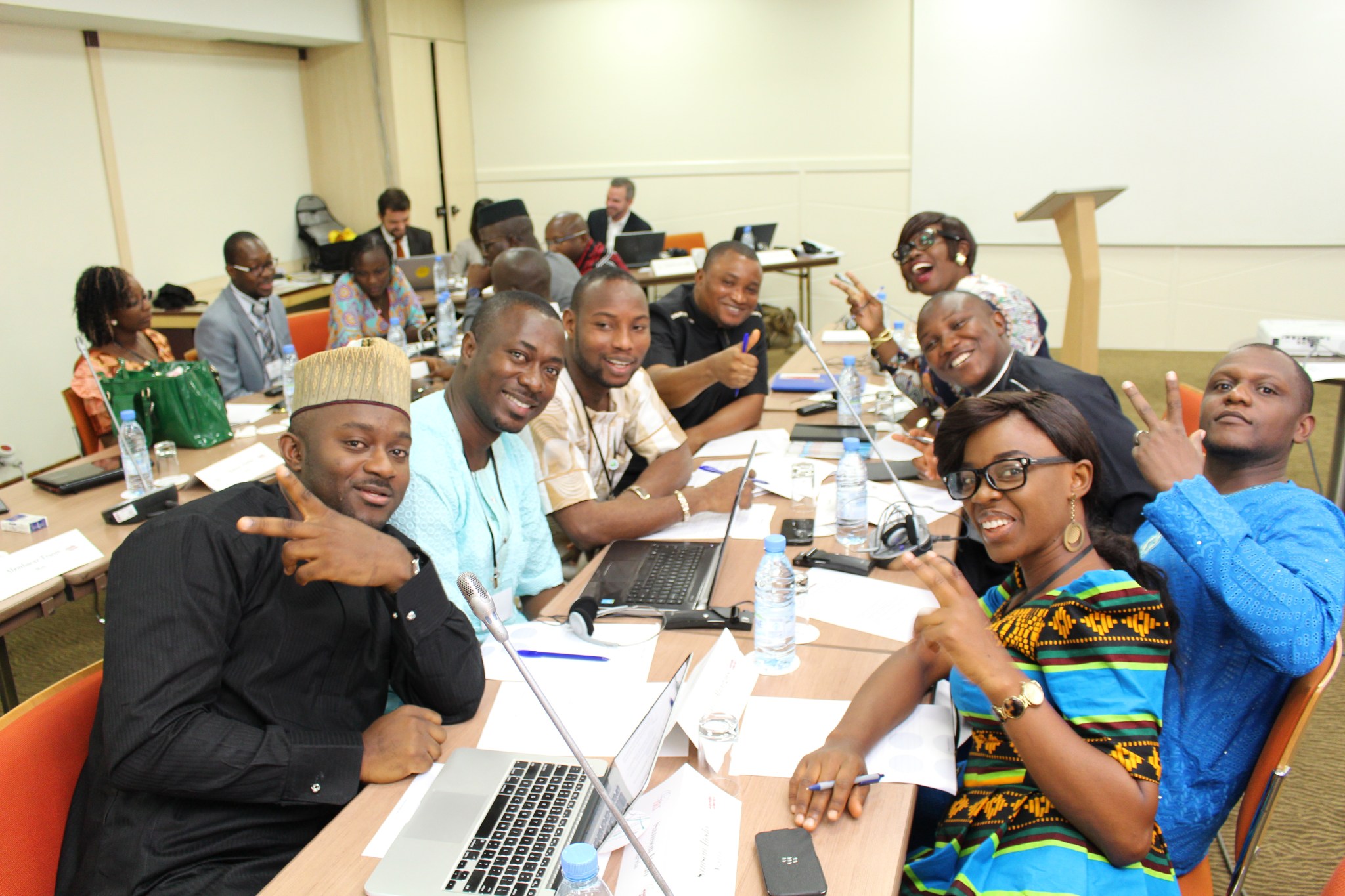
Six months after the official launch of Generation Democracy in Dakar, Senegal, scores of young people across the continent are using new skills and connections to conduct their own advocacy and outreach efforts, bringing new opportunities for friends and colleagues to be a voice in their communities.
This peer-to-peer approach is a hallmark of Generation Democracy, IRI’s new global youth initiative, which today has more than 270 partner organizations in 75 countries around the world.
In the critical Sahel region of Africa, hundreds of young people are now taking part in Generation Democracy activities. In Mali, youth partners worked together to build consensus around the Dakar Declaration, the founding platform of the Generation Democracy movement in Africa. These young Malians launched their own program in early 2016, gathering in Bamako to enlist their peers for greater commitment to democratic activity. Using the rich musical tradition for which West Africans are known, the group presented the goals of the project to a wider network of organizations through an innovative rap music performance. The team next took the Dakar Declaration before the Malian Ministry of Youth, which has endorsed their effort. This high-level buy in is a significant step forward as the young people of Mali work to bring more positive opportunities for youth to engage in the political life of their country. As Generation Democracy member Tidiani Togola said, “The emergence of democracy in Africa goes through its youth. GenDem is a space of exchange, sharing and friendship that connects young people from Africa and beyond who believe in the basic principles of democracy.”
In neighboring Niger, the enthusiasm of young people for the idea of building democratic principles is evident in the resounding response to Generation Democracy programs. Working around the campaign “My Vote, My Voice” in advance of recent elections in Niger, youth participants took part in a mobile cinema program that showcased examples of democracy in action followed by a structured debate session that allowed young people to explore what elections mean to them and why it is important to participate in peaceful political processes. Participants then went on to serve as citizen observers of the Nigerien elections. The final component of the campaign included a youth forum where Generation Democracy participants shared ideas and lessons learned from their actions and how to counter violent extremism through community engagement.
Generation Democracy has also been active elsewhere in the Sahel. In Cote d’Ivoire, one member has prepared an assessment of the inclusion of youth in the country’s main political parties. The assessment seeks to identify more ways youth are and should be included in political party decision-making.
Most recently Generation Democracy gathered in Mauritania in April 2016 when more than a dozen youth leaders based in Nouakchott discussed the challenges and opportunities for youth participation in politics and civil society over a Youth Leaders Tea. IRI President Mark Green, who attended the tea, noted, “Youth leaders from Mauritania offer great hope for the region and their commitment to building a positive outlet for youth participation is impressive.” Participants at the event included founding Generation Democracy members, representatives of youth wings from Mauritanian political parties and members of the Mauritanian National Youth Council.
Generation Democracy members are now gearing up for programs in Nigeria and a summit in Tanzania, where members from East Africa will identify areas of common concern. The outreach is building around the globe as well, with Generation Democracy programs underway in Vienna, Austria, and Tbilisi, Georgia, and forthcoming programs in Asia, where young people will have opportunities for both in-person and virtual skills building opportunities. Reaching increasing numbers of young people around the world, from the Sahel, to Europe, to Asia, Generation Democracy will continue to identify new opportunities for young people to make a positive difference in their communities.
Top